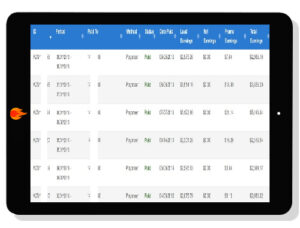Van Tharp – Bear Market Strategies
Dr. Tharp has always been convinced that people should be better prepared for bear market types and this concern has grown in the last few years.
Super Trader instructor Kirk Cooper, having managed money professionally through several bear markets, draws on his years of trading experience and research to deliver great value as you move through this home study course.
Do you fear another market as we had in 2008-2009? Could we be in a similar situation right now in 2020?
If so, you are in good company with many people who view such conditions as a crisis. For those who are prepared, however, another bear market presents conditions that spell opportunity.
This home study helps you learn how to think about trading broad bear markets or trading a specific asset class, sector or even single symbol that is in bear mode. For a major bear market, think equities in 2008-2009. For a move limited to a sector move, think oil in 2014-2015. Imagine having had some ways you could have traded those periods effectively.
Major bear markets come only once in a while but “lesser” down moves can be found almost anytime — including during bull markets. Start using the information from this course — and be prepared for the next bear market move.
Are you prepared for the next bear market?
Why not? Bear markets can present some of the best trading conditions – for prepared traders. The unprepared get hammered or realize they need to sit on the sidelines. In addition, while waiting through bulls and sideways markets for the next bear, what if you could benefit from sectors, segments or even individual instruments that are in a down market of their own?
Dr. Tharp has always been convinced people should be better prepared for bear market types and his concern has grown in the last few years. Super Trader instructor Kirk Cooper. Having managed money professionally through several bear markets, draws on his years of trading experience and past instructor, Mark McDowell’s research to deliver great value as you move through this course.
Consider These Questions
If a bear market decline started tomorrow in earnest, how prepared would you be? Given the unprecedented involvement of central banks in the global economic environment, there is no way to determine how this “experiment” plays out moving forward as they attempt to balance the deflationary forces with quantitative easing, stimulative monetary policy, and competitive currency devaluations.
A new bear market could start subtly or kick with a BANG. There might be a Fed announcement, some “surprise” news out of China, a European country debt implosion, or troops clashing somewhere. Sound familiar? Let’s say a few of those scenarios all happened about the same time and finally broke the camel’s back pushing the market into bear mode. Would you be caught flat-footed? Or, would you be ready to benefit from a bear market with plans ready?
If you aren’t well prepared, you might ask if you could just move to cash. Yes, investors and prudent traders can sit in cash to ride out a bear market – which is both a safe and a viable strategy. Identifying the timing for such a move is, in its own right, quite challenging. For prepared and knowledgeable traders, however, bear markets present some of the best trading conditions of any market type — both while the bear progresses and at the bottom just as the recovery process gets underway.
If you never thought seriously about trading in a bear market but are open to considering it, here are a few questions you might consider:
Do you know how you define a bear market type in very specific terms? Not using someone else’s general definition but yours – criteria that you truly own and monitor.
Do you have defined objectives for your trading when the next bear market comes?
Do you have strategies or systems that are ready to perform well in a bear market type?
Have you thought about your “longer-term” money and positions? Will you move them to cash or hedge them? At what point? How?
Have you ever traded a bear market or simply lived through one? Have you experienced the dramatic shifts of emotions as market prices lurch with breathtaking volatility to price levels not seen in years? Do you have a sense of how you would react to big moves without a plan?
If you have ever traded a bear market or simply lived through one, do you recall the dramatic shifts of emotions as market prices lurch with breathtaking volatility to price levels not seen in years? Do you recall the just as breathtaking recoveries?
Do you have a sense of how you would react to big moves without a plan?
How would you identify the bottom of the bear? What is your plan once that happens?
If you want to have answers to these questions, if you want to be prepared for the coming bear market, if you want to take advantage of the huge opportunities, this eLearning course will help!
What You’ll Learn In Bear Market Strategies?
The Objectives are to ensure you are prepared to prosper in the next bear market (or downturn).
Specifically, you will:
Study in-depth the concept of a bear market.
Learn what a bear market truly is and learn several ways to define and measure the bear market type.
Know when a bear market type might be starting and how to know when it might end.
Learn several different trading strategies suited for bear market conditions.
Learn how options and hedging can be especially useful for bear market types.
This home study course will help you:
Outline a big picture view of bear markets and where we may be now – from a big picture, historic viewpoint.
Identify and define bear markets using various methodologies.
Understand the psychology of bear markets and the personal psychology required for you to benefit from them
Study first-hand trading experiences of bear markets from 1987;1998; 2000; 2008; Japan’s lost decade in the 90s, Oil, 2014-2015
Understand basic options strategies useful in bear markets
Understand some basic hedging strategies
Understand how to be prepared to trade bear markets
Create a Systems development process plan
Outline your objectives for bear markets
Create Position Sizing Strategies for bear markets
About Instructor
For the longer-term trader or investor, Kirk will review the big picture options when the bear market arrives. You could move to cash, hedge, actively trade, or combine these strategies to suit your objectives. Understanding the benefits and costs of each phase will help attendees make informed choices, under the optimal decision-making conditions rather than making a rash decision under the stress of a major loss in equity. Kirk will also cover how to pursue each strategy and some additional factors to consider. It is up to you on whether or not you want to be prepared.
Kirk will teach short-term trading systems and strategies that he actively trades right now in addition to those that have been developed by other Van Tharp Institute staff and Super Traders.
The idea of shorting tends to be an anathema for the general investing public. For the trader, though, it’s a requirement to understand and execute short trades during down markets.
Kirk will review several strategies utilizing options. Because of the swiftness and degree of bear markets, options er especially attractive reward-to-risk ratios – for the prepared trader. This course will only be an introduction to options, it will not be a complete course in options and the strategies presented may not appeal to traders unfamiliar with options. But for traders who understand options concepts, bear markets present an attractive opportunity. Options strategies can get quite complex in short order; however, Kirk keeps his strategies simple because even simple ones hold so much potential—under the right conditions.
Kirk has worked with Van on the psychological component of bear market types. Psychology plays a more dramatic role in bear market types than any other market type. Successful traders have an edge in understanding the drama and using it to trade better. Even prepared, successful traders, however, might stop to consider for a moment how other market participants react and how he or she might personally react under large rapid moves in the market. These moves will have their impact so planning is crucial.







